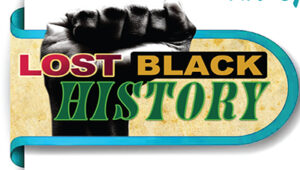Suffrage is the legal term for the right to vote. It is synonymous with women, because for the most part White men had the right to vote. We are not taught in school that Black-women were demonstratively active in the movement. It was a tenuous effort, because of residual racism from the antebellum period. Many of the women did not integrate and had Black only suffrage clubs. Let’s meet some of our prominent nubian advocates.
Sojourner Truth: Sojourner’s resume does not need a recitation. If you’re a reader of the Black press and you are not familiar with her, then you need your “Black-Card” suspended.
Charlotte Forten: She had been a founder and member of the interracial Philadelphia Female Anti-Slavery Society. Many of those ladies became active in the women’s rights movement.
Harriet Forten Purvis, Sr.: She was the daughter of James Forten, a wealthy Black sail maker, and philanthropist in Philadelphia. Historic Fairhill.com recorded, “Harriet was a founding member of the Philadelphia Female Anti-Slavery Society. For many years she was the chief organizer of the annual Anti-Slavery Bazaars held in Philadelphia to raise money for the cause. She was also a supporter of the women’s rights movement.”
Margaretta Forten Purvis: Margaretta, her mother, Charlotte Forten, and her sister, Harriet, were wealthy members of the Philadelphia bourgeois. The Forten sisters had never been enslaved and were educated by private tutors.
Harriet (Hattie) Purvis, Jr: Harriet was a niece in the Forten family of suffragists and a delegate to the National Woman Suffrage Association. She was a close friend of Susan B. Anthony, and served for 17 years as a member of the Executive Committee.
Angelina Weld Grimke: Angelina was a well-known feminist in the Washington area. She was a journalist, playwright, poet, lesbian, suffragist and teacher of English at Dunbar High School. Angelina was a member of the Forten’s family. She became a talented short story author, dramatist, and orator, whose literary works exposed her ideas about the pain and violence in Black women’s lives.
Southern White women, particularly the Daughters of the Confederacy, were adamantly opposed to Black women getting the same right to vote. Renowned historian historian Martha S. Jones wrote in Time Magazine, “Black women are set at a distance quite intentionally because, in order to hold onto the support of many White southern women, it’s necessary to keep the organization distant from African-American women. And it’s also the case, that, implicitly, the promise is that the amendment will not interfere with the disenfranchisement of Black women—so it’s not a campaign premised on women’s universal voting rights, but it’s a campaign premised in the process of selective voting rights for white women. American women.”
To learn more read the PBS article Black Women’s 200 Years fight for the Vote, Vanguard by Martha Jones or Fighting Chance: By Faye E. Dudden.

